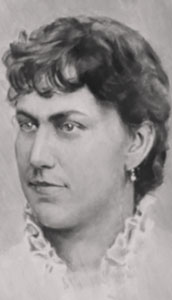A Quote by W. Somerset Maugham
Common-sense appears to be only another name for the thoughtlessness of the unthinking. It is made of the prejudices of childhood, the idiosyncrasies of individual character and the opinion of the newspapers.
Related Quotes
The Adlerians, in the name of "individual psychology," take the side of society against the individual. ... Adler's later thought succumbs to the worst of his earlier banalization. It is conventional, practical, and moralistic. "Our science ... is based on common sense." Common sense, the half-truths of a deceitful society, is honored as the honest truths of a frank world.
The only method of restoring the natural equality of dignity between men and women, lies in the demolishment of that elaborate theological structure which maintains that woman is made for the possession of man in a sense in which man is not made for woman, and that celibacy, per se, is a state of superior purity. Nature and common sense (not metaphysical sense) demonstrate that there is no good reason why any man or any woman should take, claim, or wield "lordship" over another.
A total reverse of fortune, coming unawares upon a man who 'stood in high degree,' happy and apparently secure,-such was the tragic fact to the mediaeval mind. It appealed strongly to common human sympathy and pity; it startled also another feeling, that of fear. It frightened men and awed them. It made them feel that man is blind and helpless, the plaything of an inscrutable power, called by the name of Fortune or some other name,-a power which appears to smile on him for a little, and then on a sudden strikes him down in his pride.
Spiritual Love is born of sorrow. . . . For men love one another with spiritual love only when they have suffered the same sorrow together, when through long days they have ploughed the stony ground buried beneath the common yoke of a common grief. It is then that they know one another and feel one another and feel with one another in their common anguish, and so they pity one another and love one another.
I have long held an opinion, almost amounting to conviction, in common I believe with many other lovers of natural knowledge, that the various forms under which the forces of matter are made manifest have one common origin; or, in other words, are so directly related and mutually dependent, that they are convertible, as it were, one into another, and possess equivalents of power in their action.




































